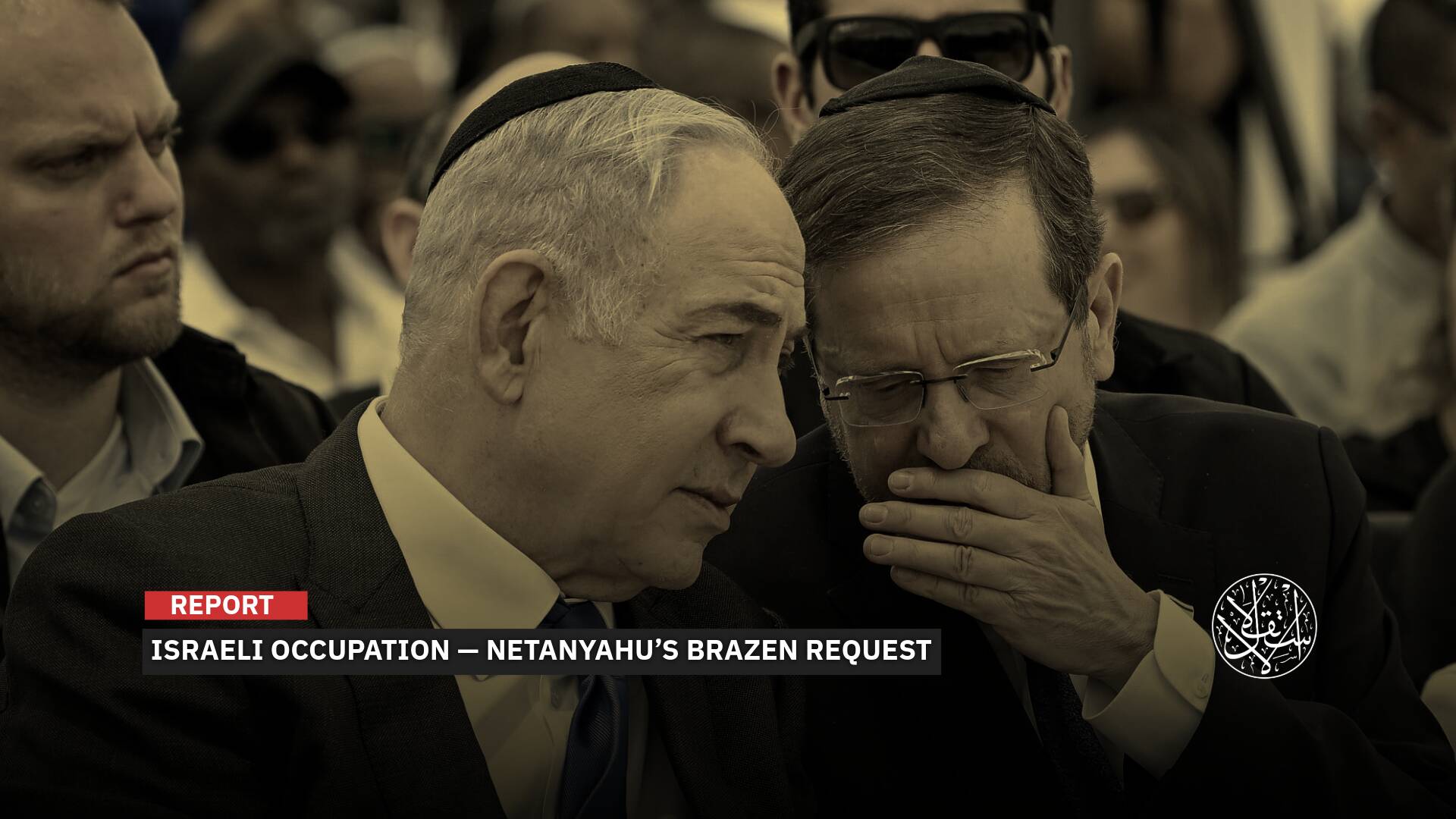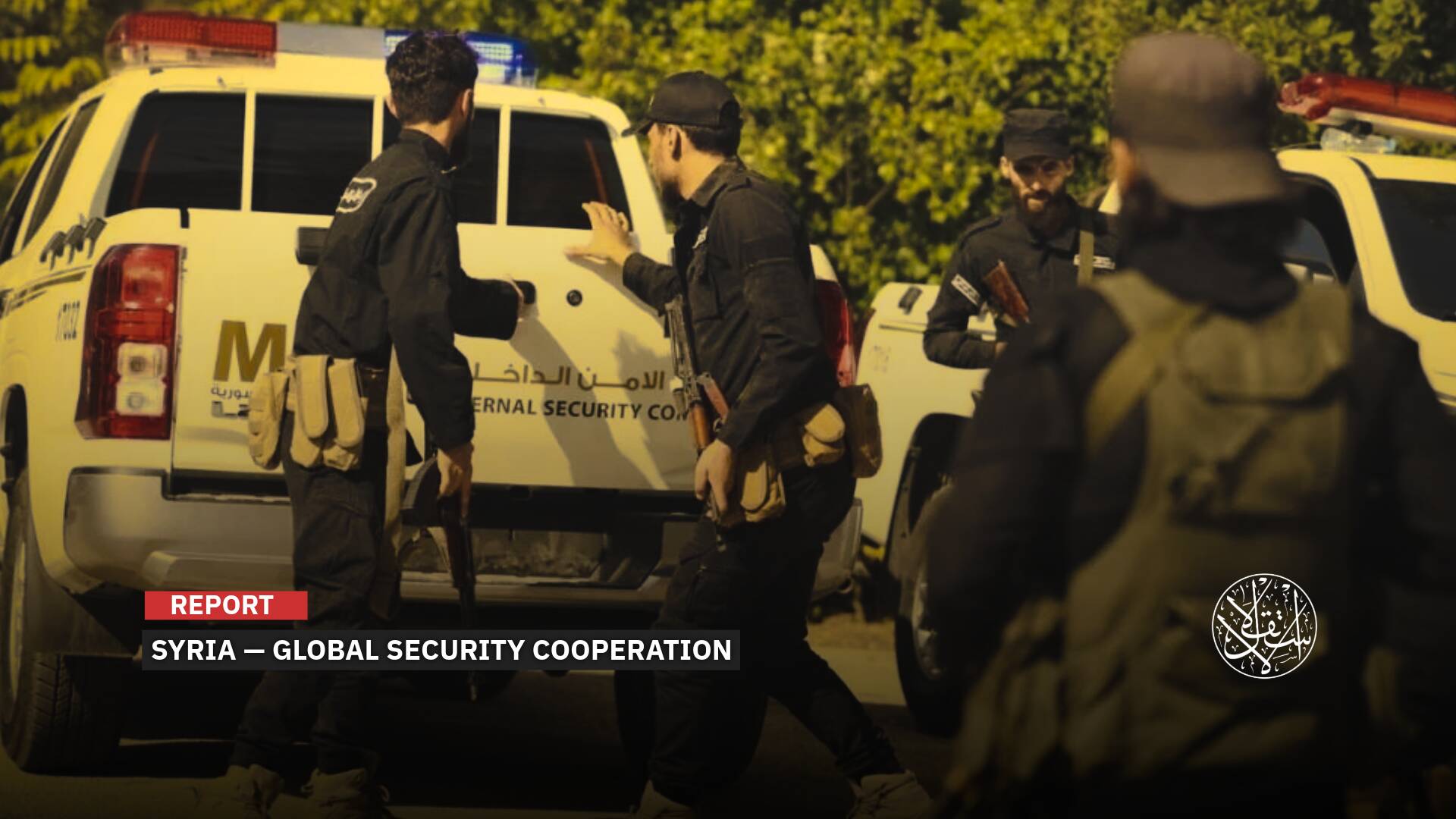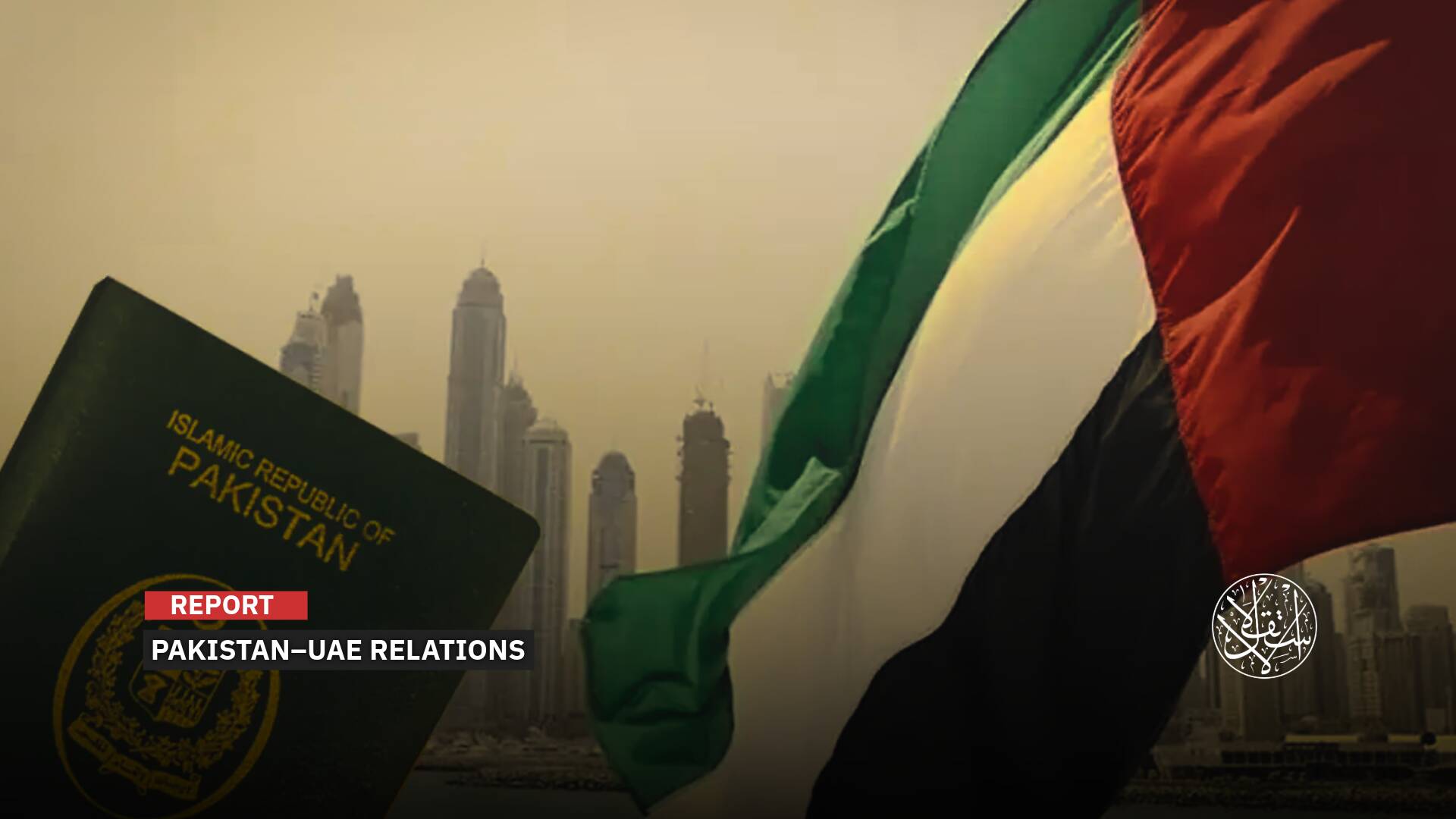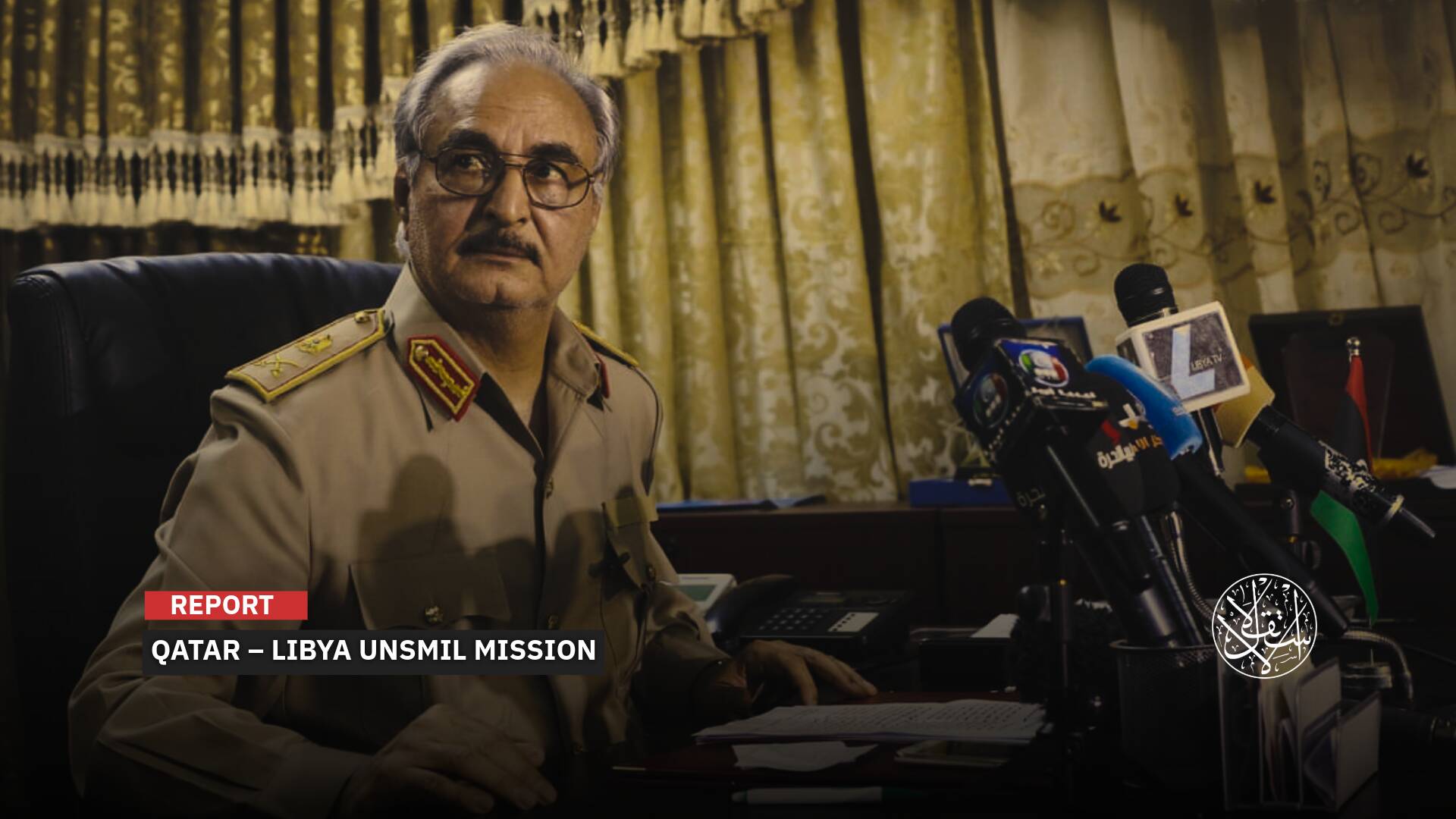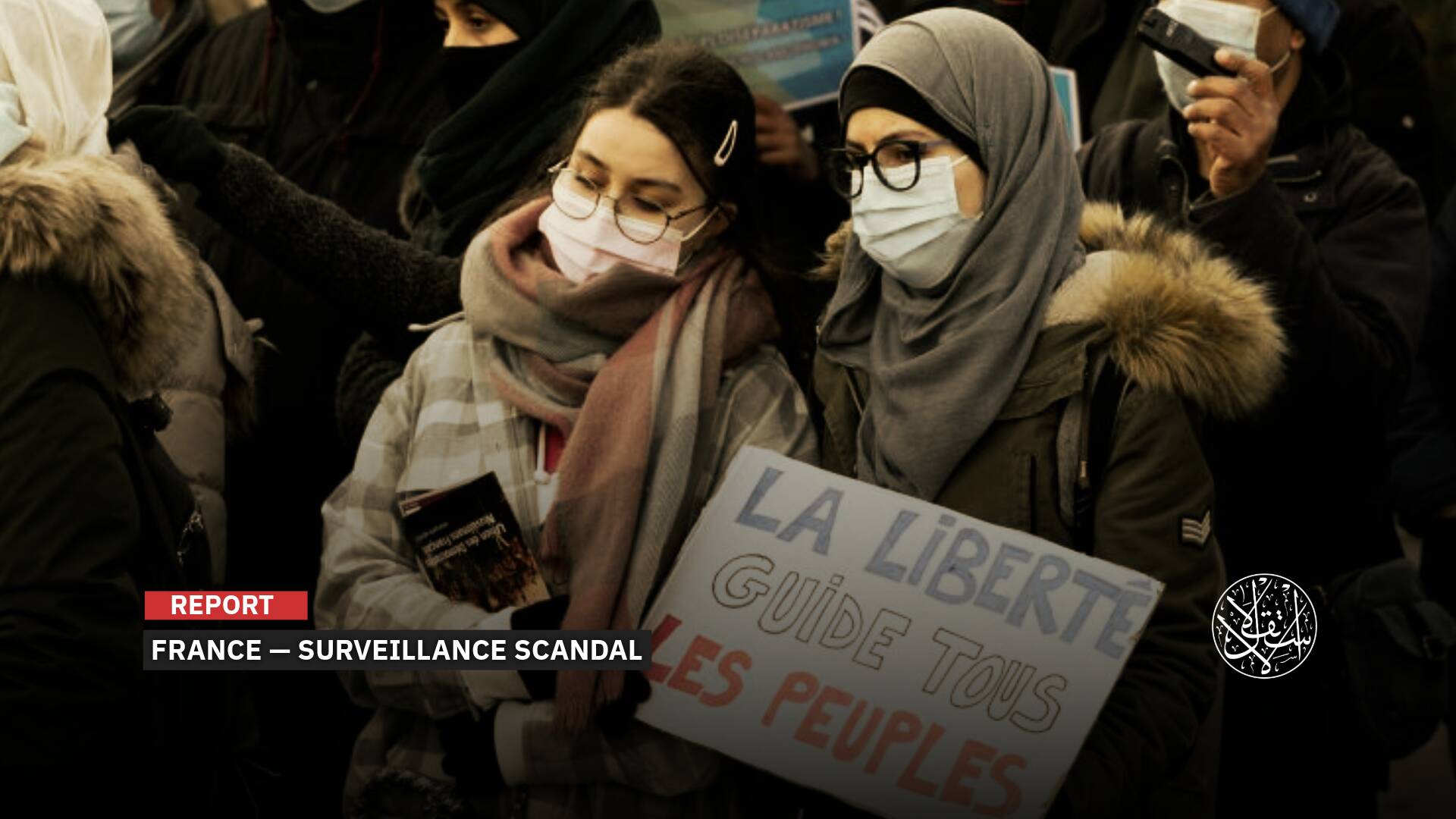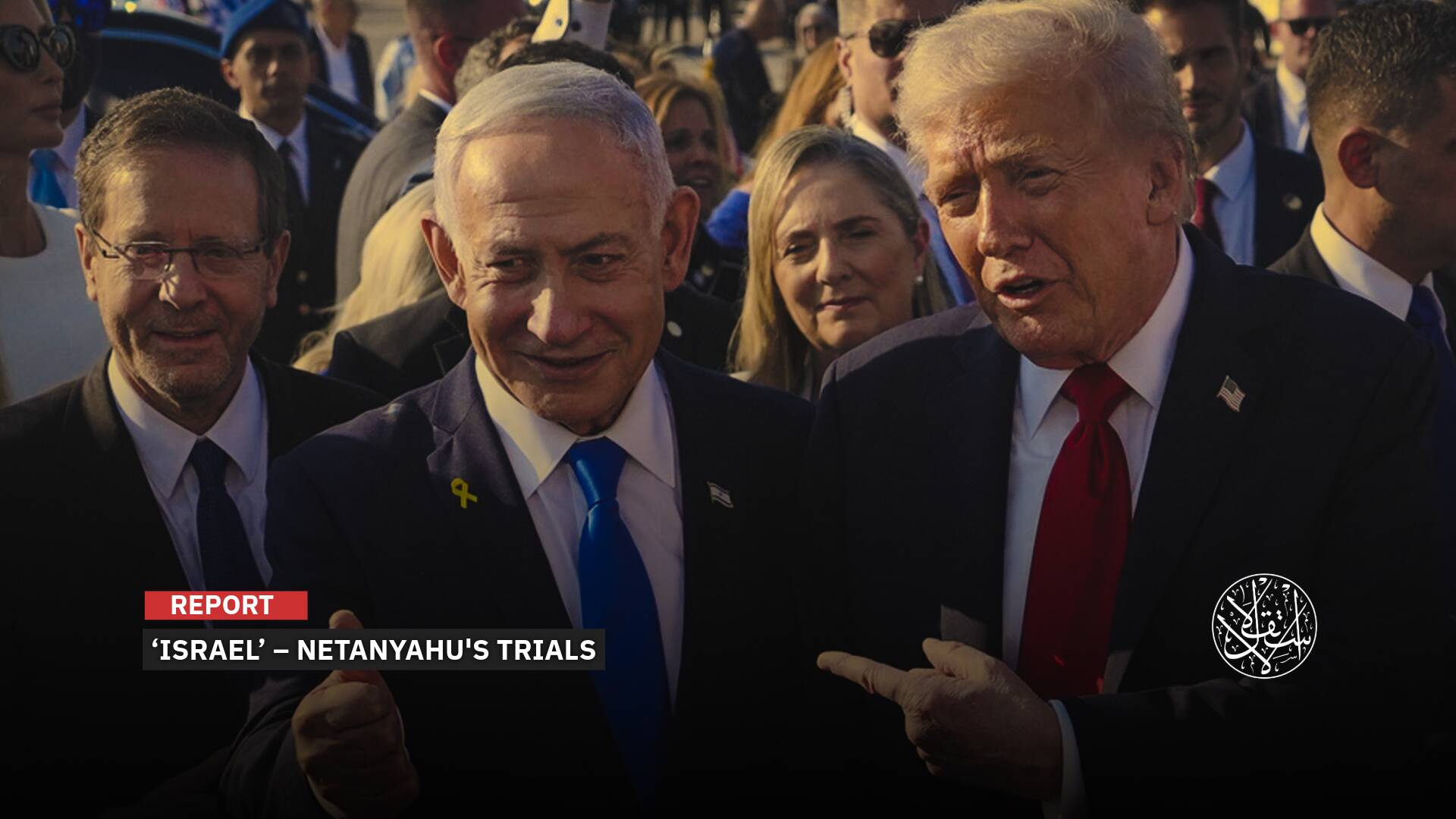This Is How Niger Became France’s Last Foothold in West Africa

Since last July 26, Niger has been in the news headlines after the Republican Guard removed elected President Mohamed Bazoum, which sparked condemning regional and international reactions, the most violent of which came from France, which has many interests in this country.
From the first moment of the coup, which is considered the seventh in the Western and Central Africa region in 3 years, the countries of the Economic Community of West African States (ECOWAS) took a hard line and asked the coup leaders to step down from power by August 6, so as not to face possible military intervention, but the junta responded by closing Niger’s airspace and vowing to defend the country.
With the deadline passed, the group did not issue a decisive response but said it would hold a summit to discuss the situation, a decision the European Union and the United States said provided room for mediation.
Observers also believe that supporting similar coup leaders in neighboring Mali and Burkina Faso to their peers in Niger may lead to undermining regional military intervention, especially since the two countries will come to Niger’s defense.
Thus, the use of force against the putschists in Niger will be a game changer and push West Africa into wars that will quickly become a new flashpoint in great power competition, with disastrous consequences for the region.
It is noteworthy that the coup in Niger represents a blow that may be severe in the back of France economically and politically, and therefore the reaction of Paris is likely to be the sharpest of all compared to its position on the coups in Mali, Burkina Faso and Guinea.
Military Intervention
The drums of war are beating in Africa, in preparation for all possibilities, after the expiry of the deadline set by ECOWAS for the putschists in Niger, amid great divisions among African countries over the results.
African countries are waiting for the green light from the United States due to the objections of countries such as Algeria, Mali, Burkina Faso, and Chad to military intervention and French support for a military strike against the putschists.
The West African country is of particular importance to France, which ranks first on the list of importers from Niger with $157 million, accounting for more than a third of the country’s total exports.
Among the most important commodities that France imports from Niger are gold and uranium. However, the junta, which has been leading the coup since July 26, recently announced the cessation of exporting these two commodities to France.
On August 10, ECOWAS leaders will hold a new meeting to discuss the situation in Niger amid division among the countries of the same group, which oppose any solution based on military intervention.
ECOWAS hinted that military intervention in Niger was not the first, as it had previously intervened militarily in Côte d’Ivoire and Liberia in 2003, Mali in 2013, Gambia in 2017, and Guinea-Bissau in 2012 and 2022. However, it failed to address the coups in several African countries, such as Guinea, Mali and Burkina Faso.
After the expiry of the deadline granted by ECOWAS to the Military Council in Niger, the latter began to alert security in anticipation of any military intervention.
The junta had announced earlier that a foreign country was preparing to attack Niger without specifying it, stressing that it would not abandon its steps despite all the threats.
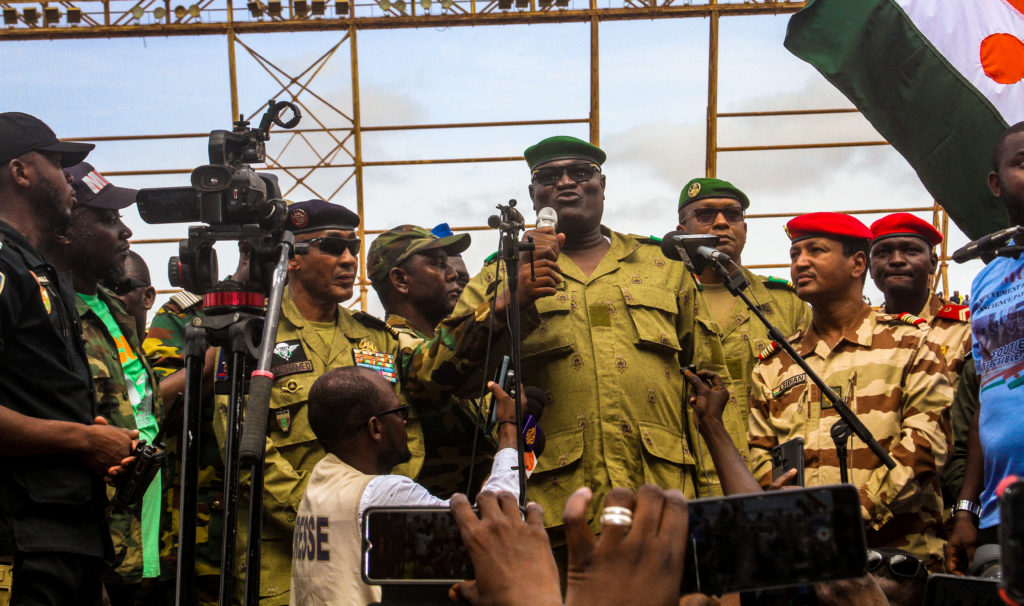
Setback for Macron
A report in Agence France-Presse spoke of a new setback for French President Emmanuel Macron after he aspired to renew relations with Mali, Burkina Faso and Niger.
The succession of setbacks in the strategic region for France also raised more questions about the fate of the French military presence in it.
The French President confirmed in December 2018 that Paris would continue to engage in combating extremist militants in the Sahel region until complete victory was achieved.
However, five years later, French forces left Mali and Burkina Faso after two coups in them, and to the south, French soldiers were forced to withdraw from Central Africa.
Six months ago, French President Emmanuel Macron pledged, prior to his tour of four African countries, to a new era for France’s relations with the continent, based on a partnership of equals.
However, contrary to Macron’s wishes, anti-French sentiment has increased in the Sahel region, and the recent military coup in Niger threatens to further weaken Macron’s policy.
In the same context, a report on the British website UnHerd, entitled Niger and the collapse of France's empire, stated that Western intervention in the African country may quickly backfire.
The report indicated that there have been several anti-Western rebellions in the Sahel in Africa, in Mali, and then Burkina Faso, and now it is the turn of Niger, which is the third country in which a coup took place in just three years.
It explained that in each of these coups, the military officers involved cited the same reasons for seizing power, namely growing concerns about the rise of terrorism and chronic social and economic backwardness.
From the point of view of the new leaders of these countries and their supporters, France is responsible for the suffering of their country because it is part of the former colonies, and they are part of what was known as Franco–Afrique, according to the report.
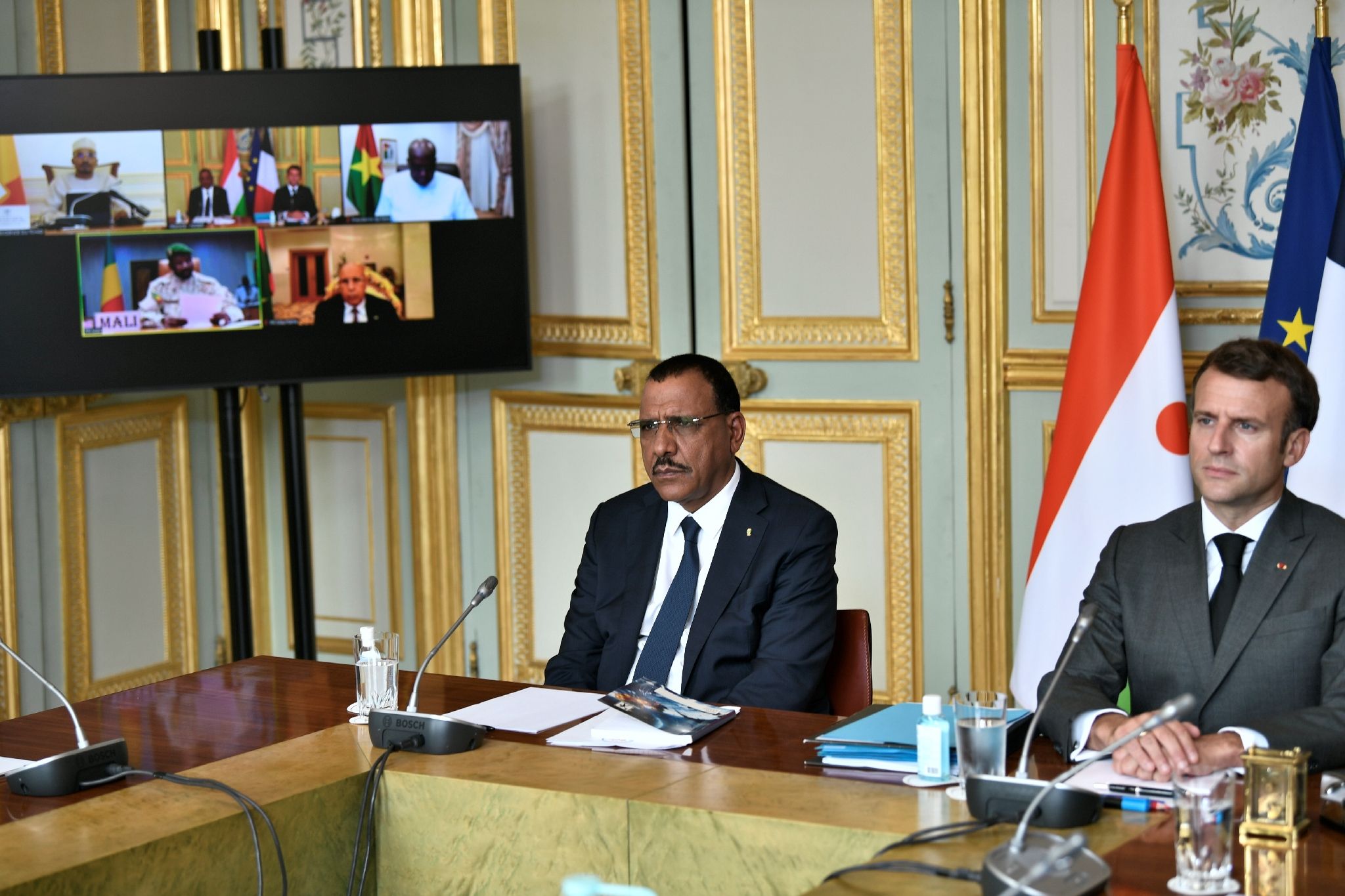
France’s control over the Franc zone is not limited to economic tools. Niger is also the main military base on the French coast and hosts about 1,500 French soldiers.
If the French forces in Niger are forced out, Chad will be the only country in the Sahel with a French military base. To complicate matters further, the African country is also home to about 1,000 U.S. troops.
This reality prompted Western countries to provide aid to this country, which is one of the poorest countries in the world.
With the coup, several countries announced the suspension of this aid, and other countries threatened to suspend it.
France was the first to stop the aid, which was estimated last year at about $131.6 million.
Germany joined France and announced the suspension of its aid, which was agreed upon in 2021, amounting to $131.6 million.
The United Kingdom also said it would stop long-term aid but keep critical aid.
The value of the European aid package that it pledged to Niger between 2022 and 2026 amounts to about $2.5 billion.
In addition to the decline of French hegemony and the U.S. military presence in the region, the coup in Niger also threatens a $13 billion project to build a gas pipeline linking Nigeria’s gas fields with Europe, which will pass directly through Niger.
In the aftermath of the EU’s decision to cut itself off from Russian gas last year, this project is arguably more urgent than ever for Europe.
Likewise, Washington fears the drone base that it established in the middle of the desert in the city of Agadez in northern Niger in 2014 under the pretext of combating terrorism by armed groups in West Africa.
Niger, which officially became a French colony in 1922, and gained independence in 1960, has one of the world’s largest reserves of uranium and is the seventh-largest producer, in addition to large amounts of gold, oil and high-quality coal reserves.
Despite all these riches, the inhabitants of this African country live in abject poverty because the former colonizer did not leave until after securing someone to transfer those riches to him, and later other countries began to compete with him.
The UnHerd website report concluded that all this fuels fears of a new scramble for Africa, with Russia, China and the West vying for influence over this immensely resource-rich, young continent.
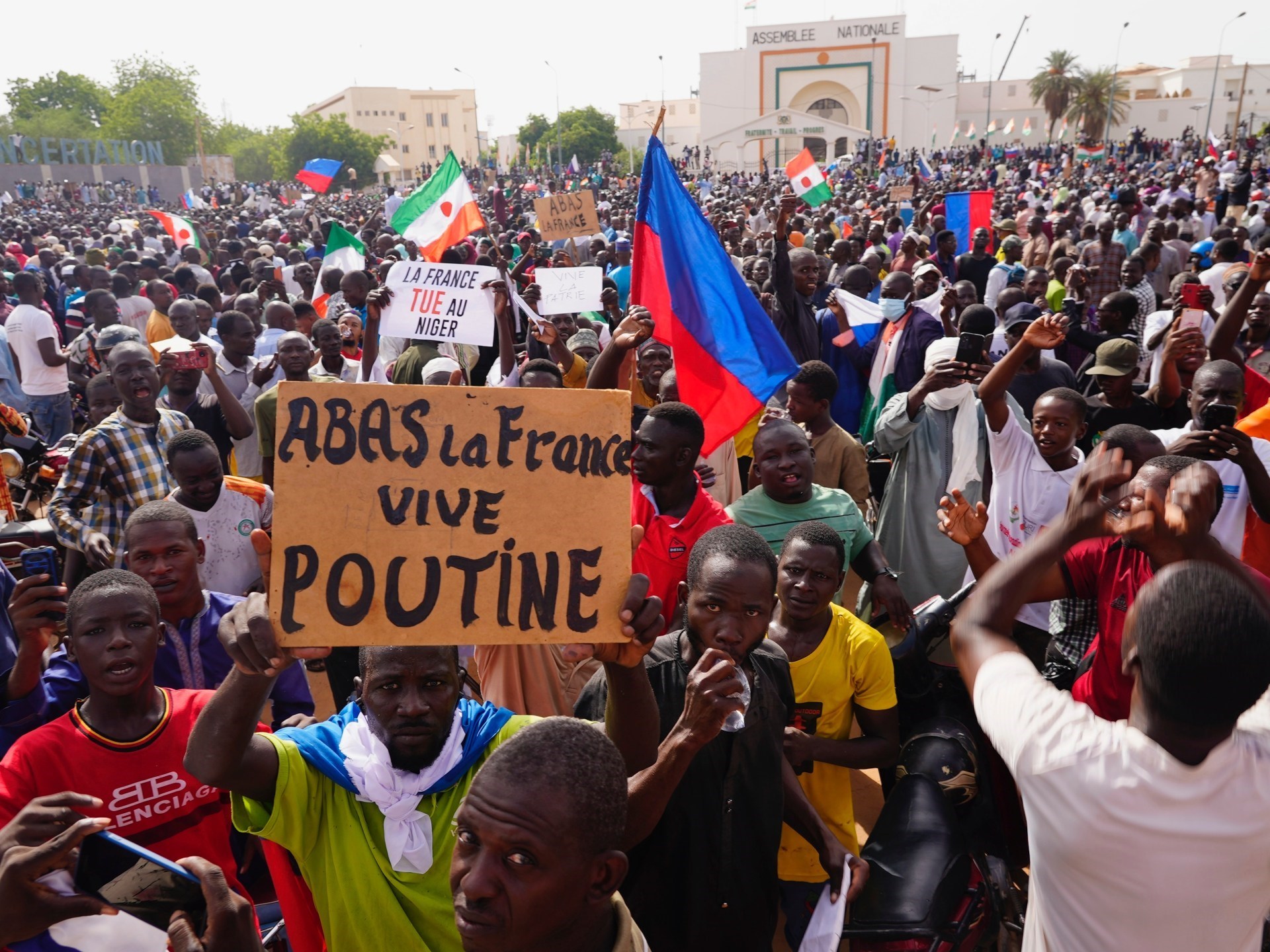
Russian Opportunism
On its part, the German News Service (DW) said that there are serious fears that, in the event of a military confrontation, the west of the African continent will turn into a new hotbed of conflict in addition to conflicts burdening the already exhausted continent as a result of several crises, such as terrorism and hunger.
These movements and divisions cannot be viewed in isolation from the broader struggle the world is witnessing between the major powers, which will add this region of the world to Ukraine as a new battlefield.
It is noteworthy that Russian influence is growing in Africa with a noticeable decline in the role of France and the West, which has always been present in this part of the continent due to historical colonialism.
Although Western countries say that there is no tangible evidence of direct Russian interference in the Nigerien coup, there is a clear opportunism on the part of Moscow, which is trying to support destabilizing efforts wherever it finds it.
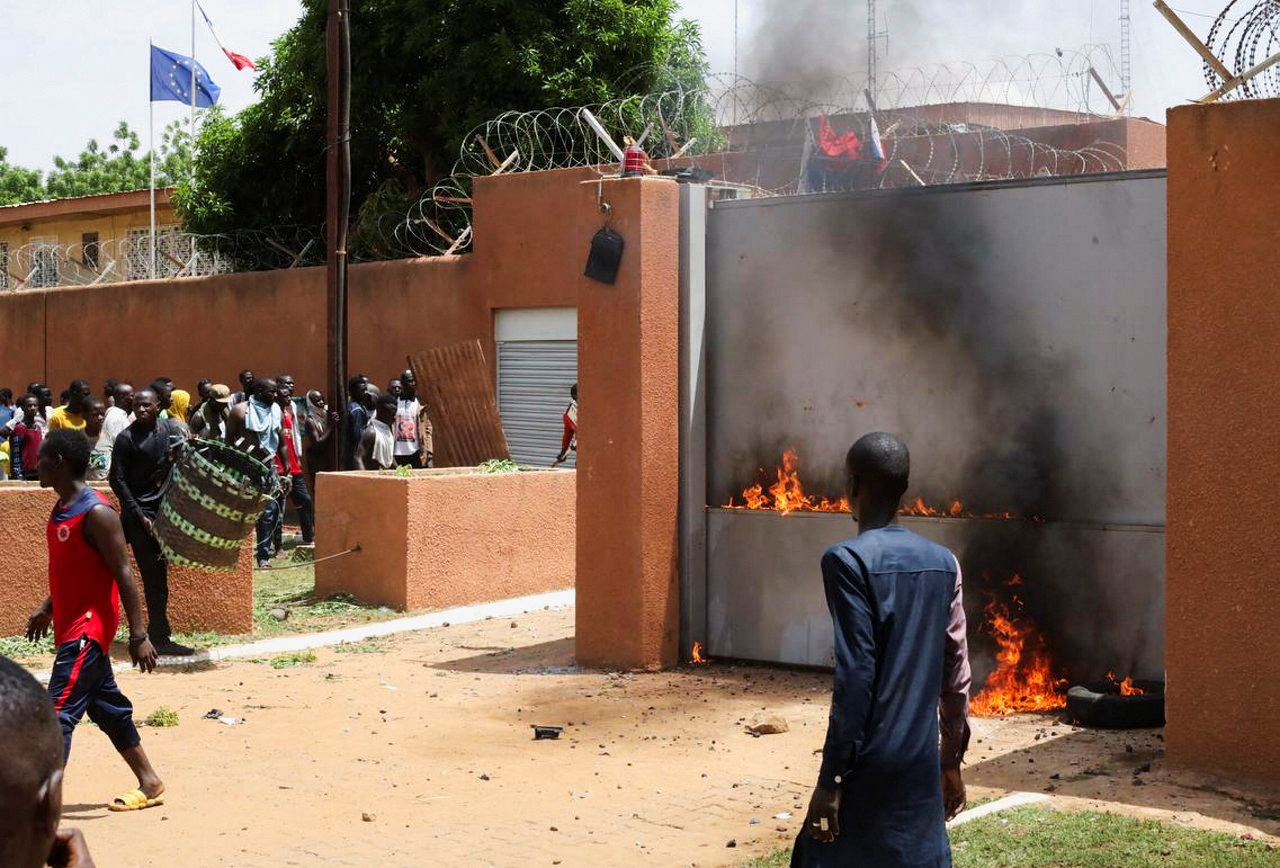
In a statement to Al-Estiklal, activist Mahran Homsi stressed that “France and the U.S. are most concerned about Russia’s investment in what is happening in Niger, especially since Moscow has been seeking for some time to deepen its influence on the African continent.
“If the coup succeeds, Niger will become the 11th country in the chain of African countries that witnesses Russian influence through the Wagner Group.”
Mr. Homsi said, “Sudan was left alone several months ago, facing its fate due to the fighting between the generals, while the West rushed to hint at the military option in order to confront the coup in Niger, which reflects the duality of international dealing with African issues based on influence and interests.”


